After landing what she thought was the perfect job right out of college working at a large bank, Brittany Deal quickly realized that the work just wasn’t sparking the same passion in her that it was her coworkers. The long hours crunching numbers in a cubicle and the tiring one-hour-each-way commute proved to be a soul sucking process, and Brittany felt her enthusiasm for life slipping away.
A leave of absence and a trip around the world turned out to be the perfect remedy, allowing Brittany to explore her passions and, ultimately, come up with the idea for Savvy Girl. Discovering that the name was up for trademark turned out to the destiny that she was searching for, and the now 28-year-old CEO began building her unique brand.
For those just being introduced to the brand, Savvy Girl is every girl’s one-stop source for brushing up on a range of subjects—anything from wine to nutrition—without being doused in an overload of facts and boring information. The idea originated from Brittany’s observation that the Internet and self-help books, in general, have the potential to be great resources, but often overwhelm readers. In contrast, Savvy Girl provides women with ground level expertise in an easy-to-read format digestible in just one short workweek. Career Contessa had the opportunity to sit down with the successful author and we got the deets on how Brittany has been able to build her savvy empire.
Her Starting Point
Many people find the transition between college and “real life” a bit daunting. Can you tell us about your journey between the two? What was your first job post-college?
When I got my first job after college (working for a large bank) my goal was to find the most prestigious and lucrative job I could get. I had heard the “follow your passion” advice a million times, but I didn’t think it applied to me. Although I loved school, no subject in particular stood out to me, so I decided to find a career that involved something I was good at—numbers.
But after college the bright fluorescent lights of the real world were jarring. I was driving an hour each way to work, and spending 10 hours a day in a cubicle. There were elements of that job that I found interesting and intellectual, but for the most part I couldn’t emotionally connect with the work I was doing. I could feel my enthusiasm for life, one of my strongest assets, slipping.
One morning my boss said to me, “I spent all night thinking about how we can solve this problem on the ABC deal.” And I remember thinking, “What? You spent all night thinking about this?” I knew then and there that, if I wasn’t passionate about the work that I was doing, I would only go so far in life because people who are passionate about the work they do think about it even after they’ve left the office.
I decided to take a leave of absence from work to travel and get perspective. This was the trip that sparked my idea to start Savvy Girl and ultimately how I discovered my passion.
How has your college degree prepared you for your current endeavors? Do you recommend that people interested in starting their own business embark on a streamlined path or explore a little more?
You won’t learn how to run a business in college, but you will develop your core skill set: How to work in teams, how to lead and when to follow, how to find information, how to get along with others (people/social skills), how to build a network, to carry yourself professionally, to manage deadlines, to get out of your comfort zone and try new things. These core skills are the foundation to succeeding in any career.
I think exploring is important if you don’t think you have found your passion yet. Don’t settle! Especially when you’re young.
Everyone’s path is unique, and success isn’t linear. Tina Seelig, a Stanford MBA professor, says our career path is more of jungle gym then a ladder with lots of dips and turns. I couldn’t agree more and I believe that in order to find out who we are and the type of work we want to dedicate our lives to, we must first find out who we aren’t.
When did you first spark the idea for Savvy Girl? Where did the name come from? Describe your vision of the ‘Savvy Girl.’
I was actually reading Tina Seelig’s book What I Wish I Knew When I Was 20 in the middle of the Bolivian Amazon (on that round-the-world trip) when I came up with the idea for Savvy Girl. On page 100 she discusses the concept of finding the “sweet spot” between your passion, skill set and the market. For me, that sweet spot was combining my love for learning and skill sets for teaching and writing, with a business model that focused on providing information-rich, yet concise guides on all of the topics women care about so that they could “get savvy” and get back to their fabulous lives. That is how I came up with the idea for Savvy Girl.
The name “Savvy Girl” came to me because I realized that people didn’t want to be an expert on every topic, they just wanted to be savvy. When no one had trademarked the name yet, I knew it was my destiny.
I believe the “Savvy Girl” is someone who continually strives to improve herself, but is savvy enough to know that life is about achieving progress toward our personal growth, instead of achieving unrealistic perfection. #ProgressNotPerfection
Your career started in banking before transitioning to your own project. What is the biggest difference between the two? How have you managed to switch gears?
Well, the obvious answer is that banking is a much more analytical career while writing is more creative. However, the biggest difference is going from working with people on teams to working by myself. That was a difficult transition for me because I love people and I don’t like alone time and when you’re a writer you’re totally on your own.
One of the best things I did (and wish I did sooner) was get office space. Working from home sounds amazing at first but after a while you get cabin fever, and you always seem to have meetings with the laundry, your fridge, etc.
Switching gears from banking to books was all about having the right core skill set: focus, dedication, integrity, perseverance, passion, self-awareness and enthusiasm. Building my craft took a lot of practice, but like anything, you get good at it by trying, failing and then improving.
Her Big Break
What factors did you see in the market that led you to believe it needed Savvy Girl? When did you get the sense that Savvy Girl was taking off?
It really started when I got a Kindle in 2009 for my birthday (FYI—this was a full year before the first iPad came out). When I started reading eBooks, I knew the book industry was changing, the barriers to entry were gone and nothing stood in my way but myself.
I knew Savvy Girl was needed because I felt like there was a lot of crappy content on the Internet or, as I say on my website, “we are drowning in information, but starved for knowledge.” So I wanted to cut through the clutter and deliver the information women needed to get savvy, solve their problems and get more fun out of life.
It was when people told me how much they loved the first guidebook, “Savvy Girl A Guide to Wine,” that I knew Savvy Girl was really going to work. My friends said it made them laugh and they couldn’t believe how much they learned in a four-hour read (while also enjoying the read).
What is the most challenging part of your job? How do you keep yourself from getting burnt out?
Every day is a new fight, a new challenge and a new problem to solve.
It can be difficult because most of the time I don’t have all the information I need to make the decision, or even have someone to go to for feedback. This means that I’ve made a lot of mistakes, but that is the only way to learn. No one goes into business knowing how to do everything.
Also, I’ve learned (and am still learning!) to focus on my “progress, not perfection,” because no matter how much progress I make each week progress is an exchange of old problems for new ones. So to keep from burning out I focus on how my business is progressing instead of worrying about the challenges ahead. I also like to drink wine. After a glass or two whatever is bugging me in that moment becomes “tomorrow’s problem.”
If we had the chance to peek at your schedule, what would an average day look like?
First of all, I am a very anti-routine person because I think routines make me creatively blind. My best ideas come from moments when I am doing something different, such as meeting new people, getting out of my comfort zone, reading books, exercising and exploring.
But my “general” schedule is something like this:
-
7:30 a.m. to 8:00 a.m.: Wake up, drink coffee, get ready
-
8:00 a.m. to 8:15 a.m.: Drive to office
-
8:15 a.m. to 9:00 a.m.: Emails, follow ups, scheduling
-
9:00 a.m. to 2:00 p.m.: “Creative Hours” (writing, editing, etc.)
-
2:00 p.m. to 5:30 p.m.: “Biz Dev Hours” (business development projects, meetings, phone calls, personal development, research, project management, accounting, marketing, etc.)
-
6:00 p.m. to 7:00 p.m.: Gym or dinner with a friend or networking event
-
Remainder of the evening: I usually watch TV, clean up the house or do my social media (some emails) and other items on my to-do list, depending on the week.
What tools do you use to stay current in your ever-changing industry?
I read about 20 to 30 books a year. I plan to give reading recommendations on the Savvy Girl blog soon. I also use social media to stay current on industry trends and get inspiration. I also use Evernote to keep track of interesting articles and ideas.
Her Perspective
Translating passion into a career is tough. What advice would you give to women trying to figure this out?
Take your “routine blinders” off by exploring and get out of your comfort zone. Take classes, read blogs, read books, travel (take a trip around the world!), keep a journal. Learn who you are and what makes you unique (this will start out first with figuring out what you don’t like and who you don’t want to be).
Also, don’t let others tell you what you are good at—find out what lights you up because, over time, you will get good at something with practice. All you need in the beginning is an interest in what you want to do. For example, I was great at math and numbers so I was steered toward a financial career, but that career didn’t light me up.
When I transitioned from a left-brained career to a right-brained career I was not a good writer and I had never written anything in my life. But a strong interest in writing, a passion for learning, combined with hard work and hustle made my dream of publishing books a reality.
Also, check out LiveYourLegend.net. They have a free downloadable “Discover Your Passion” toolkit among many other awesome resources to help you “find the work you cannot not do!” This is the only blog I follow religiously.
What skills are essential to working as a your own boss? What skills are essential to working as a writer?
Working as your own boss: Self discipline, ability to make decisions, ability to take criticism, perseverance, determination, creativity, people skills, self-belief and a little bit of naiveté. In my opinion, being ignorant about how hard it is to start a business is a good thing since it will make you go for opportunities others won’t.
A writer needs to be focused and self motivated because writing a book is a long-term project. Writers also need the ability to make their own deadlines and the discipline to follow through on them. They also should be passionate about writing and have a lot of patience for the re-writing process.
How do you handle work/life balance? How many hours do you put into your job daily?
First of all, the concept of “balance” is a myth. There is no perfect way to balance each day, but we can achieve an overall balance by having some days feel a little slow and some days feel a little over scheduled.
Second of all, I’ve learned to (1) prioritize, (2) get realistic about how much I can accomplish in a day and (3) know what hours of the day I get my best work done.
When you’re an entrepreneur and you love what you do, it’s impossible to tally the hours. I think about Savvy Girl when I exercise, when I eat, when I brush my teeth, when I read an article and even when I dream at night. I only physically sit in an office for 7 to 10 hours a day, but I live and breathe my business because I love it so much.
And finally, what do you wake up looking forward to? What’s next for your career?
I am beyond thrilled to be partnering with incredible experts to co-write all of the future Savvy Girl guidebooks. I feel so lucky to get to work with incredibly smart and talented people who are also passionate about helping women get the knowledge they need so they can get savvy and get back to their fabulous lives. (I also love getting to work with people again!)
As of this interview, we have several Savvy Girl guidebooks in the works coming to the market in 2014. So stay tuned!
You May Also Like
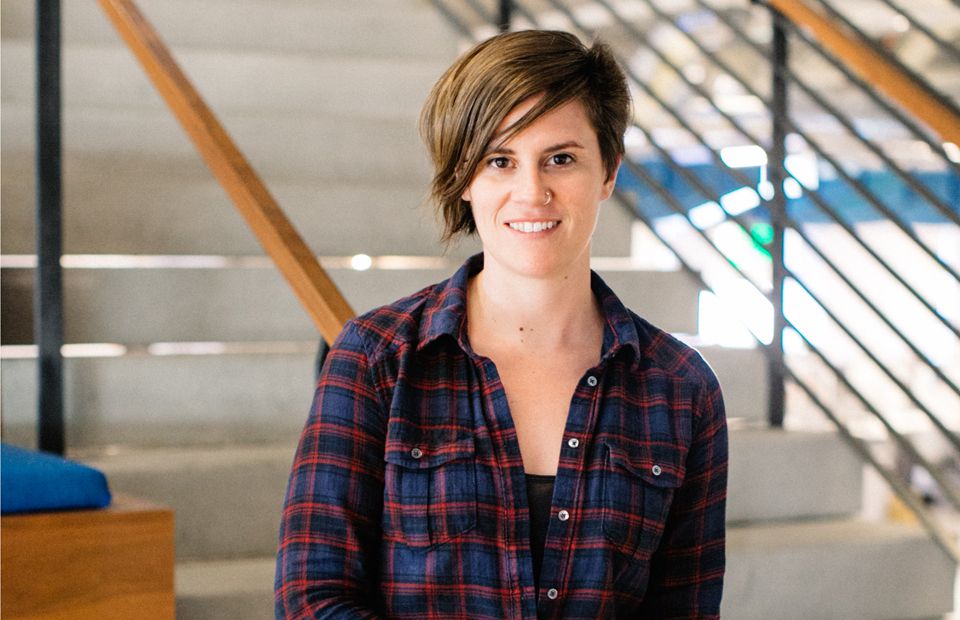
Media
How to Use Positive Reinforcement at Work—and Other Advice from a Pandora PM
"My advice to anyone who wants to get into product management is: check your ego at the door."
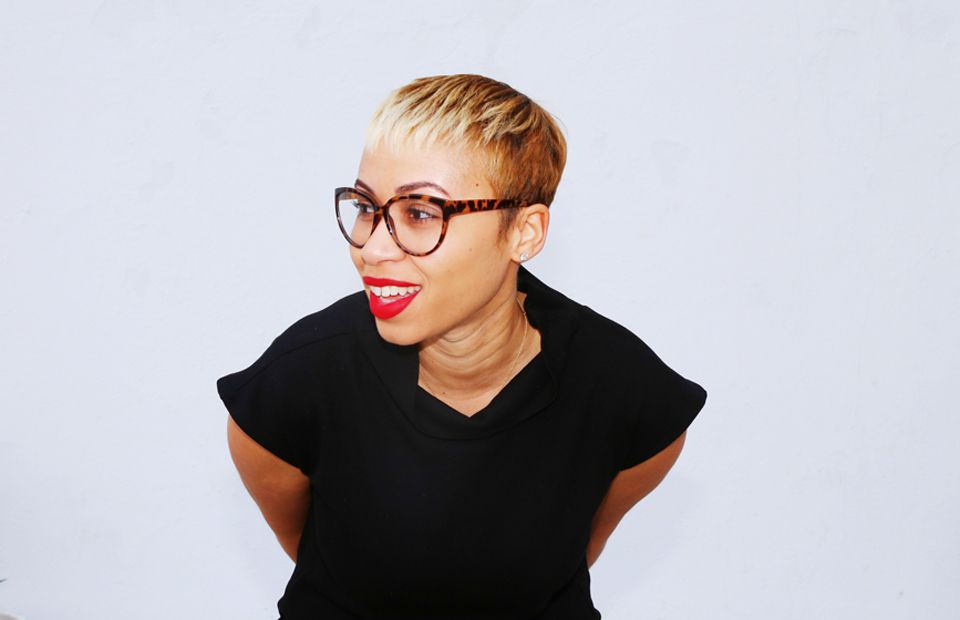
Media, Communications + Public Relations
How to Take Risks, Make a Switch, and Find a Career You Love—From a Woman Who's Done It 4 Times
Making your wildest dreams come true starts with understanding yourself—and Ahyiana Angel can help.
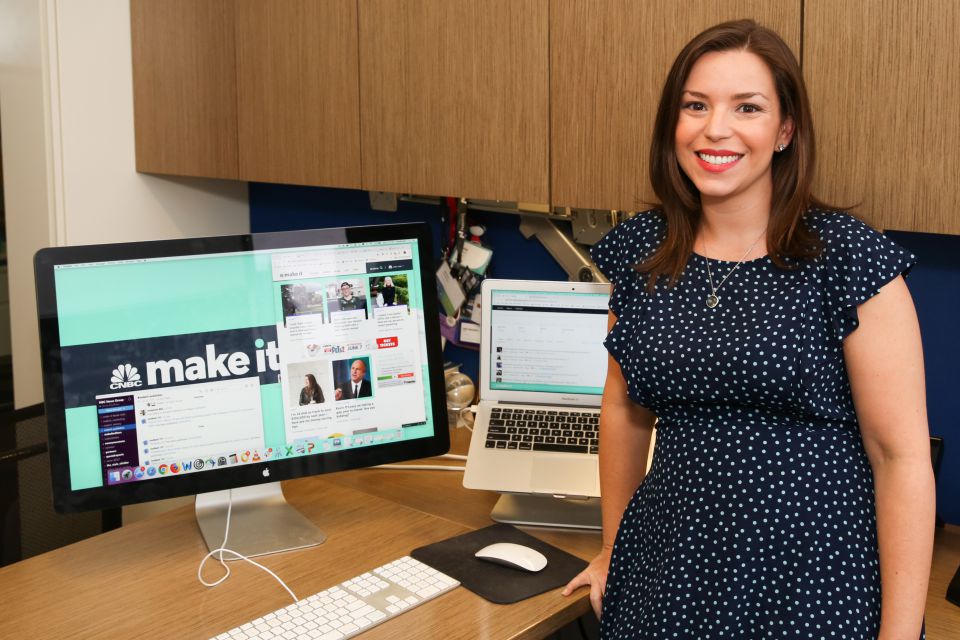
Communications + Public Relations
Creating Content That Empowers Audiences with CNBC's Digital VP and Managing Editor
This week, we interviewed Jenna Goudreau, the VP and managing editor of CNBC Digital. Let's learn how she keeps her powerhouse content creation machine going.
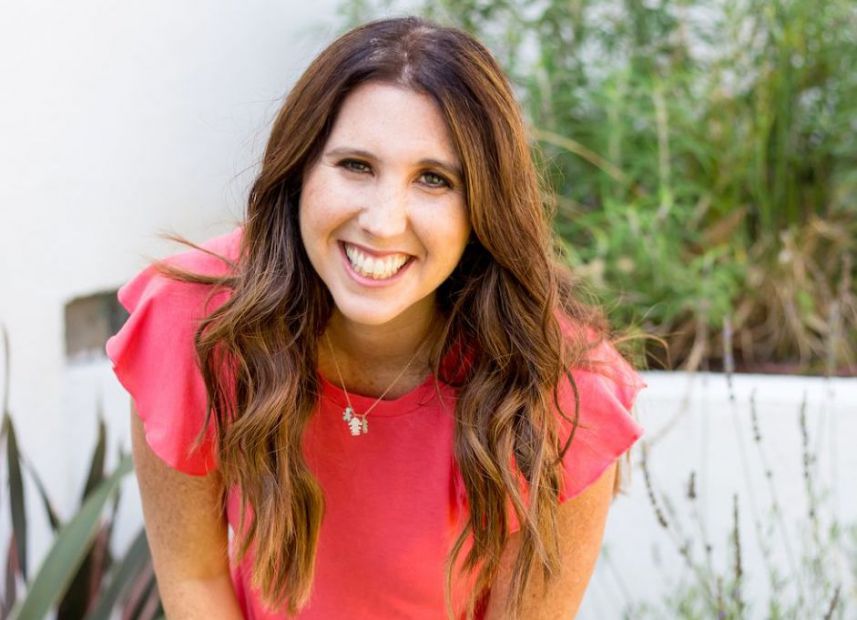
Entertainment
Working Creatively From Home with Cathy Heller
Cathy Heller is a singer, songwriter, entrepreneur, mother—and now, an author. Determined to lift others up to the "happiest versions of themselves," this queen of the hyphenated job title, leads by example. She shared how to build a fulfilling career in a creative field—all while working from home.
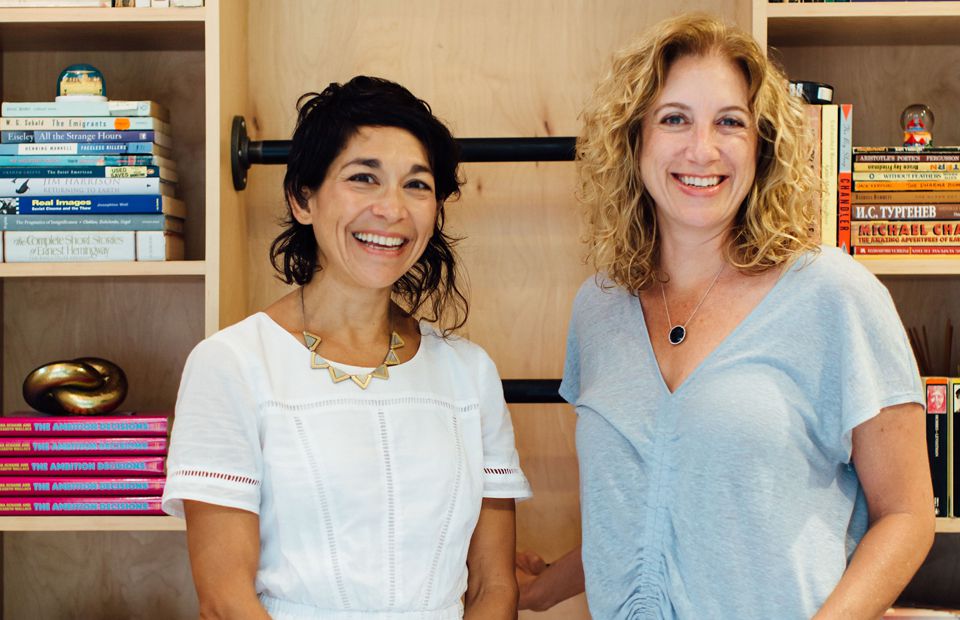
Media
Women, Work, and What It's Like to Write With Your Best Friend—From the Authors of The Ambition Decisions
"We should all give ourselves permission to challenge the things we think can’t be challenged."
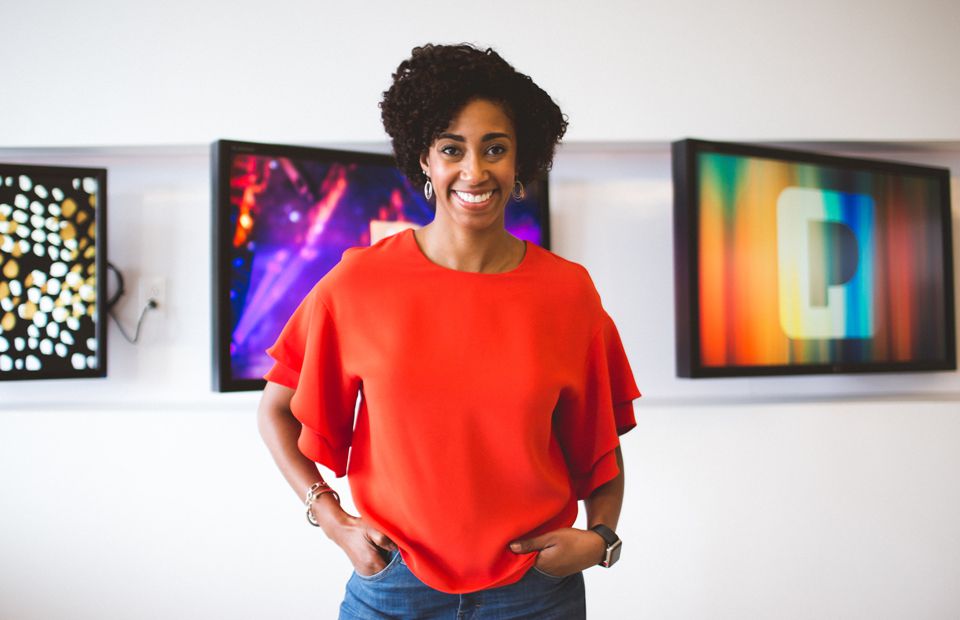
Media
A Director at Pandora on Staying Present, Celebrating Others, and Learning From Failure
"Share your wins, but most importantly, share what your growth areas are, share when you fail, share how you bounced back."
Get the Best Career Advice Delivered To Your Inbox
Join our newsletter to stay in the loop.
